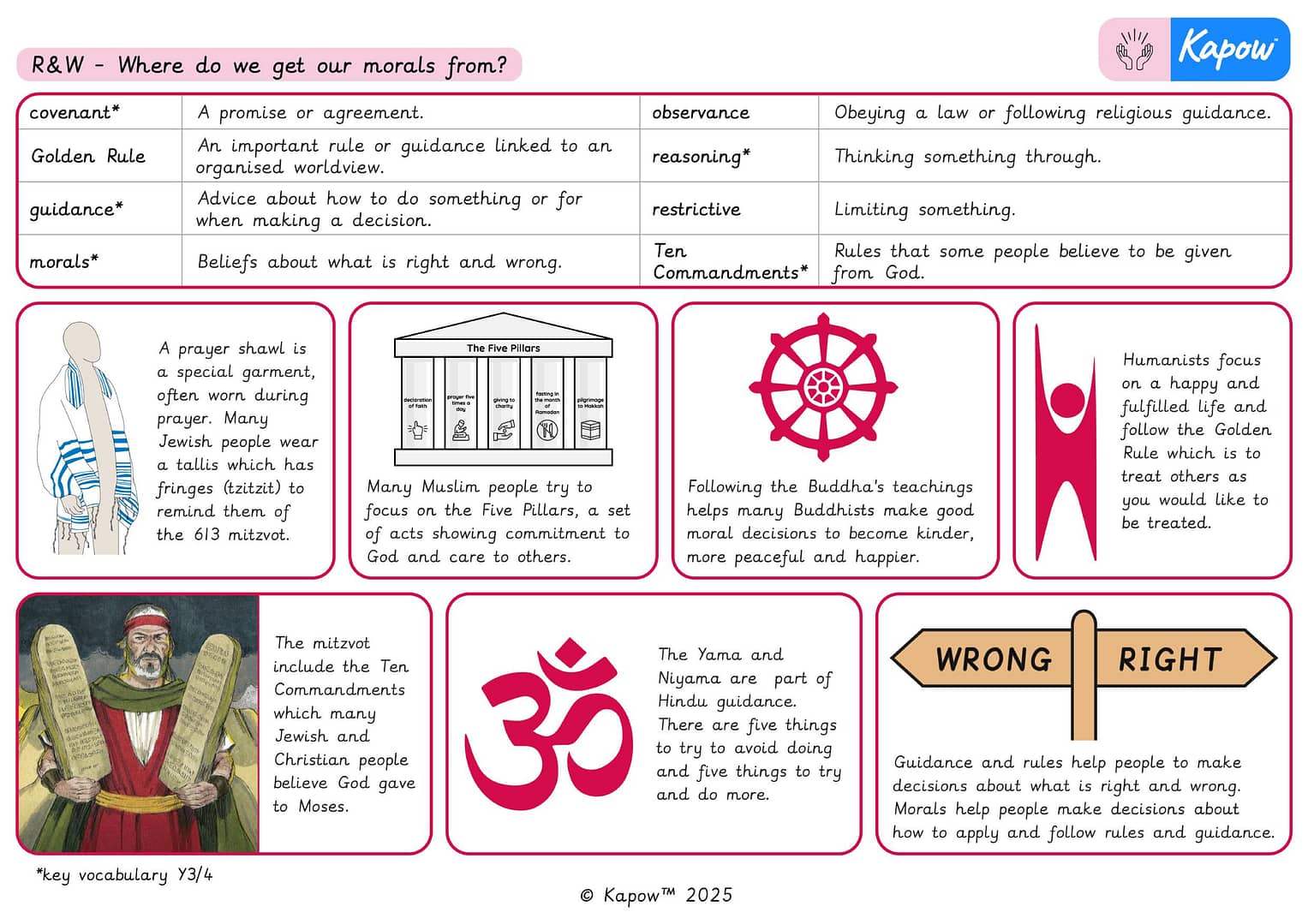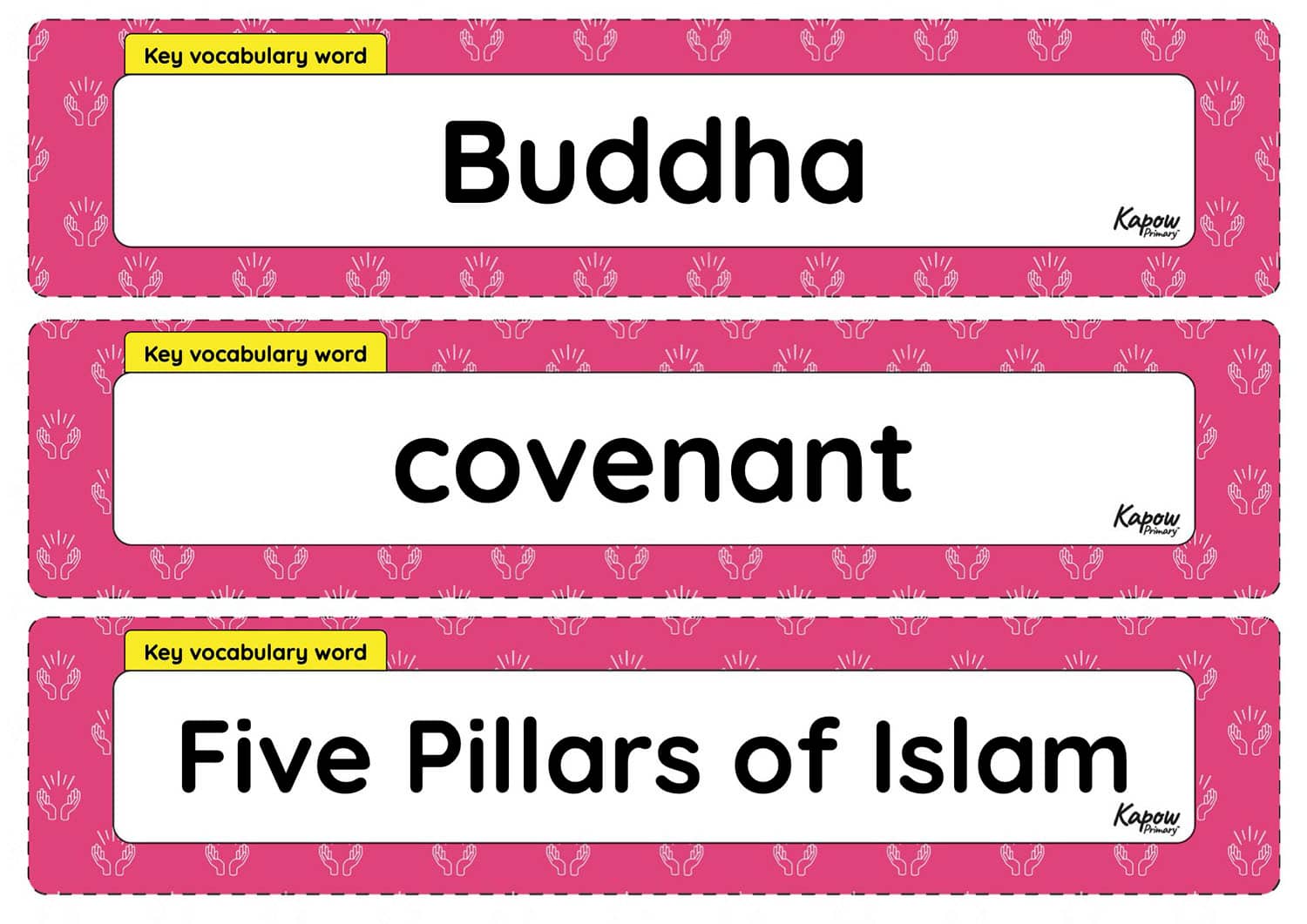Y3/4 (B): Where do our morals come from?
Thinking about how people decide what it means to live a good life, children reflect on their own opinions about what is right and wrong.
New statutory RSHE guidance is here. We’re creating our brand new RSE & PSHE scheme ready for September 2026. Learn more
- Subjects >
- Religion and worldviews >
- Mixed-age >
-
Year 3/4 (B): Where do our morals come from?
Unit outcomes
Pupils who are secure will be able to:
- Explain what morals, rules and guidance are.
- Identify some of the ways people decide what is right and wrong.
- Evaluate how Golden Rules might help people make moral decisions today.
- Explain how some people remember important guidance using physical items.
- Identify similarities and differences between different religious guidance.
- Identify common themes across religious and non-religious guidance.
- Present their own ideas for a moral code and explain their ideas clearly.
In Lesson 6, the children create their own origami book following the instructions in the Pupil video: Making an origami book. Depending on the needs of the children, some or all of the origami books could be pre-made before the lesson.
Suggested prior learning
Lessons
Y3/4 (B): Lesson 1: How do we know what is right and wrong?
- To explain what morals are by exploring Golden Rules from different worldviews.
Y3/4 (B): Lesson 2: What do some Christian and Jewish people believe about right and wrong?
- To evaluate the importance of religious guidance to some Christian and Jewish people.
Y3/4 (B): Lesson 3: How do people remember the rules?
- To identify how some people remember moral guidance by exploring artefacts.
Y3/4 (B): Lesson 4: Is all religious guidance the same?
- To describe how religious guidance can influence daily life in different worldviews.
Y3/4 (B): Lesson 5: How do some Buddhists make moral decisions?
- To explore beliefs by comparing religious and non-religious guidance.
Y3/4 (B): Lesson 6: What helps you make moral decisions?
- To express ideas and justify opinions about moral guidance by evaluating those from other worldviews.
Key skills
Key knowledge
Related content
Resources
Unit resources
Cross-curricular opportunities
English: Spoken language
RSE: Respectful relationships
British values: Tolerance of those with different faiths and beliefs, Mutual respect, Rule of law, Individual liberty.



